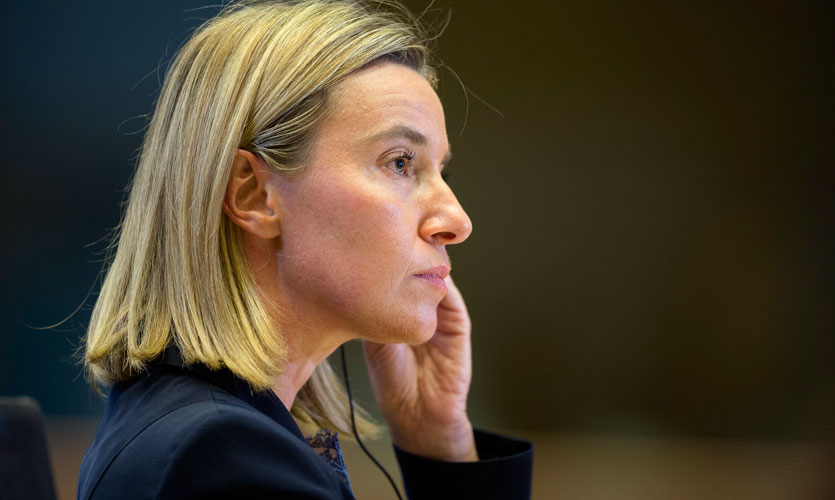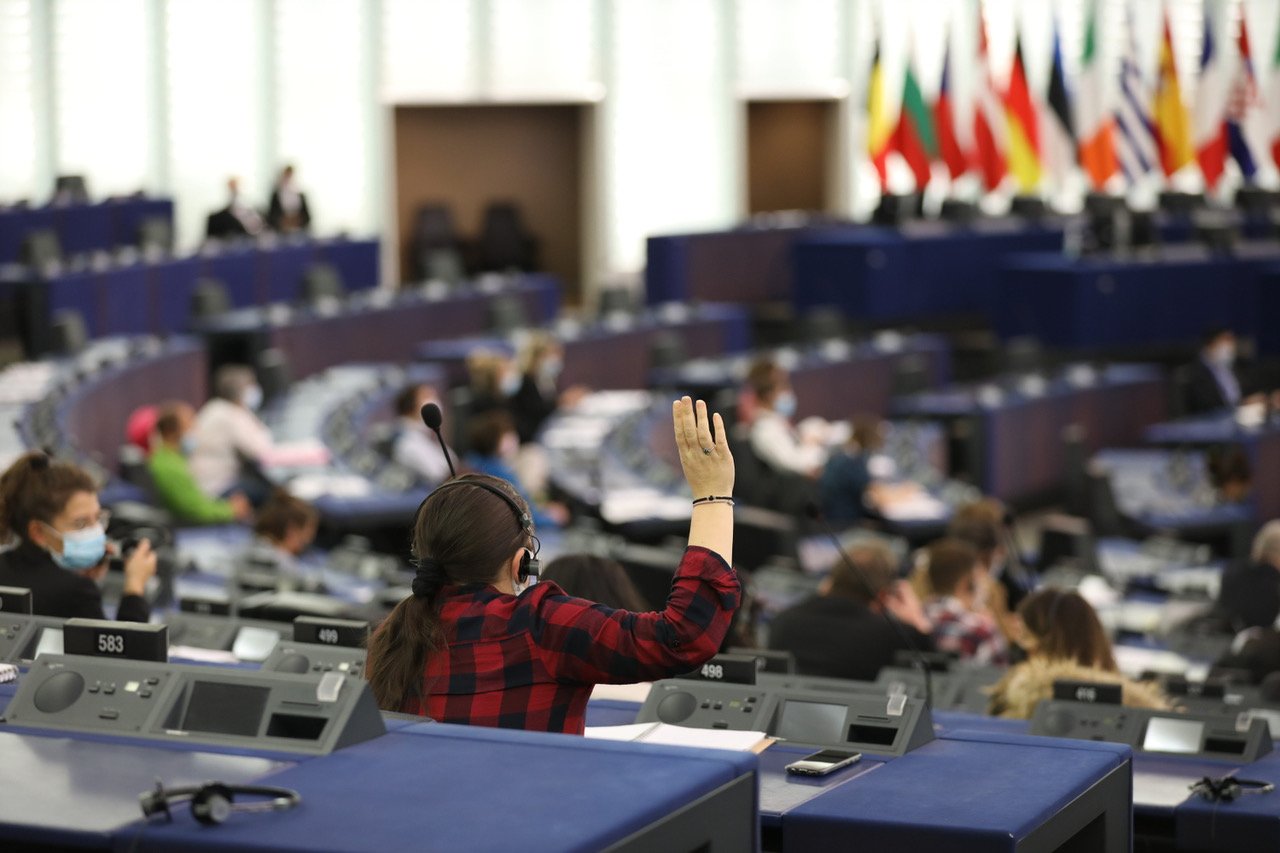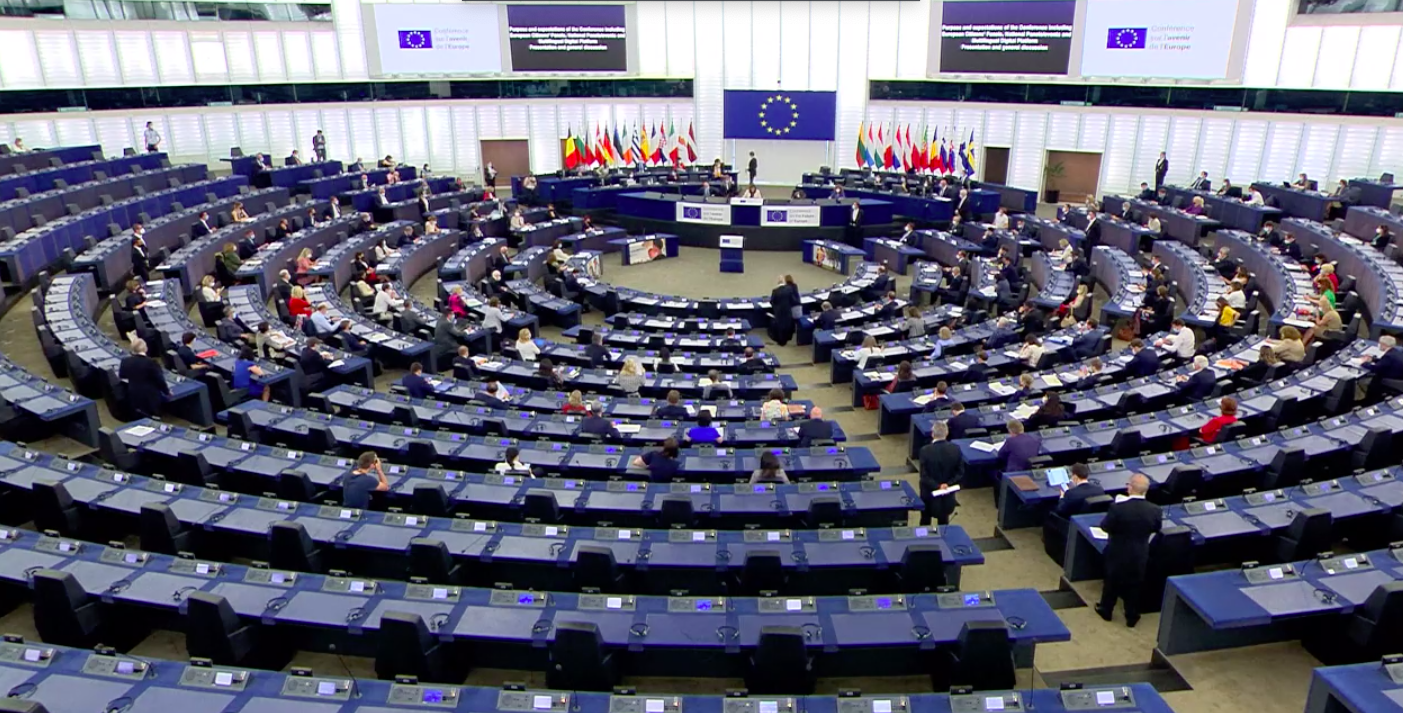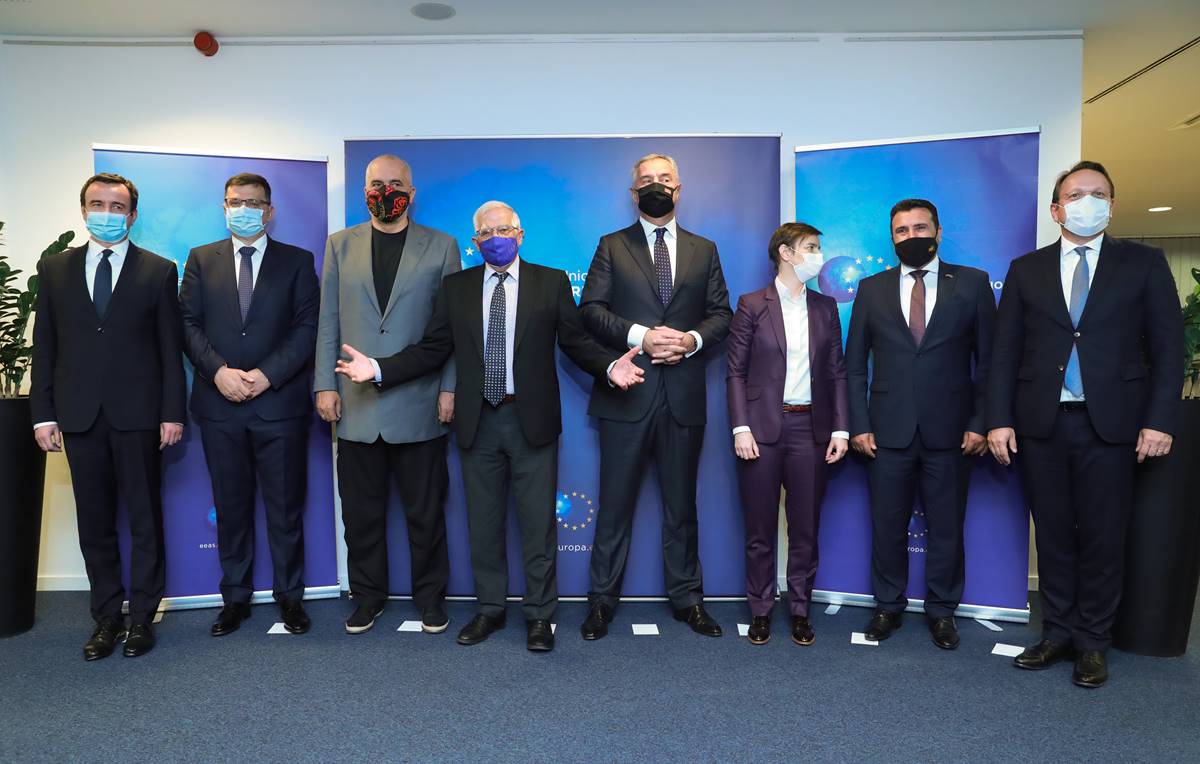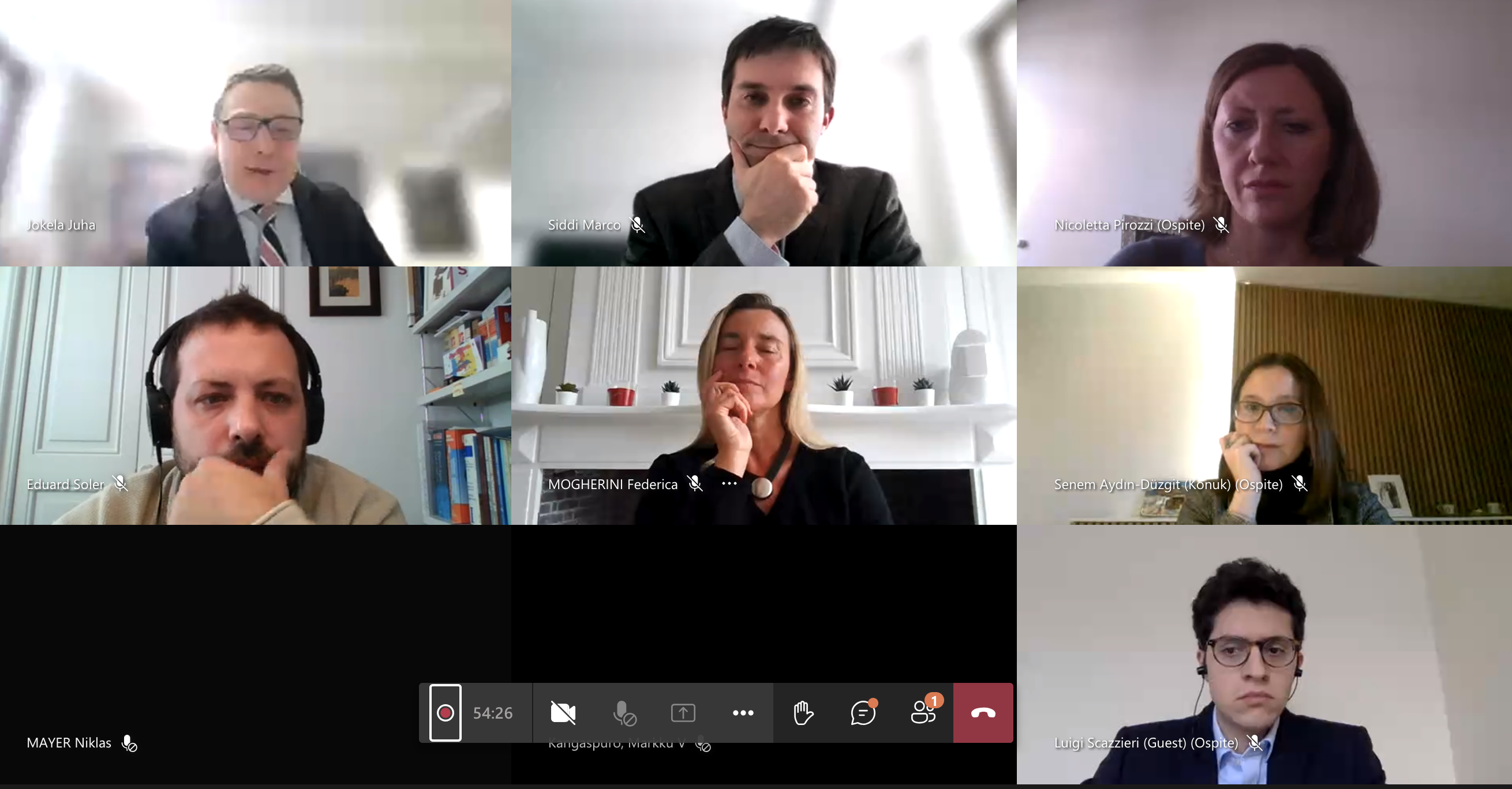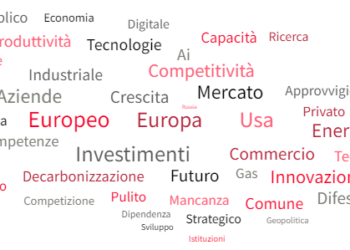Brussels – A remarkable wealth to be spent for peace and dialogue against terrorism: culture. European and other populations’ culture, indeed. Federica Mogherini, High Representative of the Union for Foreign Affairs and Security Policy and Vice President of the European Commission, one of the 20 most influential women according to Forbes, has worked on a new project for a long time, overriding several difficulties with the firm support of the Italian government, and on Wednesday, June 8, the European Commission finally presented “Towards a EU strategy in international cultural relations”.
That is to say, “Cultural diplomacy,” one of the main issues to be discussed during the annual High-Level Round Table “How can we govern Europe?” to be held in Rome in November.
Doubts, with reference to cases like this, concern the feasibility of beautiful but usually ethereal projects. However, “We have the funds needed,” reassured Mogherini, “we just need to be sure they are not distributed indiscriminately: we need to guarantee these investments reach our interests.” “We aim at strengthening the economy of our region, creating bridges, letting others know us and knowing others reciprocally, establishing bonds among people especially during these hard times, to prevent fears and radicalisation both in Europe and abroad.”
Eunews: This proposal could revolutionise the EU approach to diplomacy and to the promotion of culture, which could turn into a strong support for economic growth. Would you be so kind to explain us its key principles?
Mogherini: Culture is our most important treasure, for each one of us as individual and for our societies. Culture is a resource as well: of course, an economic resource, but also a resource for our foreign policy. We then need to valorise it. Firstly because it is crucial in the our formation as individuals and citizens, then because it creates wellbeing, innovation and jobs. This is true in Europe, where creative industries create more wealth than automotive or chemical business. And it could be true even outside our continent. Investing in cultural diplomacy could help strengthening the economy of your region, but especially creating bridges, letting others know us and knowing others reciprocally, establishing bonds among people especially during these hard times, to prevent fears and radicalisation both in Europe and abroad. This is why we have worked so hard to the first European strategy for cultural diplomacy.
This seems to be a foreign policy tool capable of bearing fruit in terms of prevention of conflicts and remediation of societies devastated by was as well.
Culture has always been a powerful foreign policy tool, from Greek philosophy to Arab maths, from Matteo Ricci to American cinema during the Cold War. Our Europe is a cultural superpower, even though sometimes we do not recognise it: our culture is fascinating for the entire world, we are a reference point at global level. This power needs to be used, we need to turn it into a tool of peace and growth. Supporting the digital reconstruction of Iraqi marvels destroyed by war, or the restoration of the Timbuktu manuscripts damaged by terrorists, we are saving a crucial piece of our history, and in the meantime we are helping the economies of countries whose wellbeing is crucial for our interests, we are contributing to the rebirth of these places, to give opportunities and hope to those living there and willing to remain there. Keeping a church or a mosque safe has an enormous symbolic value during a peace talk or in a path towards national reconciliation. When we fight smugglers of artworks stolen in Syria, we are depriving terrorists and criminals from their financings. The more foreign policy focuses on culture, the more effective it is. And this has already proved to be a reality: the institutes for culture that each country has around the world are often the heart of diplomatic actions. On our side, we need to turn this work systemic and shared at European level.
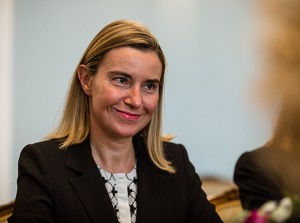 Some would call it “a new paradigm.” Where have your started, and how difficult it was to get to the target? As far as we know, there were strong oppositions inside the Commission, even more than inside Member States.
Some would call it “a new paradigm.” Where have your started, and how difficult it was to get to the target? As far as we know, there were strong oppositions inside the Commission, even more than inside Member States.
In the end we all agreed on an innovative text, on a new way to work, and this is the only thing that matters. Even European embassies in the world, not only those of Member States, are making a remarkable job, organising concerts, movie festivals, exhibitions. But exhibiting our art is no longer enough, we need a more active way of “making culture.” We want our delegations to become a reference point, a trigger for helping European cultural operators to work with our partners, for founding mixed cultural enterprises, for creating more cultural exchanges between museums and the tourist paths connected to them, but also for creating a true network of former Erasmus participants, as a support for our economy and diplomacy. We want foreign restorers and researchers to come here for learning professions mastered by Europe, and for teaching us crafts we forgot or we do not even know yet. Let’s think about those fleeing war or extreme poverty: no one should lose their right to their now culture. We cannot think about integration if we force those coming in our cities to renounce to their history — and we cannot renounce to our culture as well. This would be how fear and dissatisfaction grow. We need to bear in mind our origins in order to make different identities coexist and respect one another.
Even the best projects cannot develop without being well-funded. Which level of financing will support the “EU strategy in international cultural relations”?
The Union is already supporting dozens of projects for helping development or cooperation containing cultural elements. Still, so far all these project haven’t shared a common vision or a strategy. One Minister could even be in the dark about other Ministers’ activities! Funds are available, we just need to be sure they are not distributed indiscriminately: we need to guarantee these investments reach our interests. This is why we wanted a common strategy, a shared road map. We need to make our delegations in the world, the services of the Commission and the national institutes for culture cooperate: in every region and every country we can detect fundamental projects and the possible financing lines. National governments are to be involved directly: the Italian proposal for the creation of “Culture-keepers” following the example of UN peacekeepers shows that an idea born in a single country could become a share treasure for everyone with a bit of team play. It is also true that national institutes for culture are already offering a brilliant example of cooperation at European level, in the regions around the world where they coordinate with EUNIC, the European Union of National Institutions for Culture.
Is there any project from which you would start?
One of the cornerstones of our action will be the Mediterranean area — let’s think about all the things we could do, from Palmyra to the Bardo Museum in Tunisi. Culture could offer a different perspective, opposite to the one offered by terrorists, composed of violence and extremism. In any case, we are not starting from scratch. We have already several project pursuing cultural diplomacy, we have a solid collaboration with the UNESCO, the delegations of the Union work to the full swing. However, with some units more and a common governance we could bear our responsibilities as cultural superpower.
One of the main challenges we are going to face concerns our relationships with Iran, after the signature of the agreement on nuclear weapons. One of the first agreement signed by the government of Teheran with some European countries, including Italy, concerned culture, and this was not by chance. Europe can coordinate the initiatives of Member States and make them stronger and complete through mutual completion.
What kind of collaboration do you expect for cultural centres inside and outside Europe?
I hope it will be as open as possible. Of course we are not going to impose our culture around the world. We do not want to be coloniser: we have much to tell about us, but much to learn about others as well. Europe is the land of rights and freedom, we want to make ourselves know abroad for our culture as well. And we are aware that culture and innovation do not happen in an isolated environment. It was our openness to the world that made our continent so important. We absorbed different influences, we made them meet our history and we created a new storyline. We need to keep up with this path, for instance inviting all our partners in the world to open their own Institutes for Culture to tell us their art, traditions, modernity. Partly, diffidence and fear towards those coming to Europe are fed by stereotypes and insufficient knowledge of their cultures. Still, far too often, they are fed by an insufficient awareness of our own culture and identity. Those thinking that meeting other cultures or traditions would mean renouncing to our own culture and tradition, does not know how history works. The best way for rediscovering our history and our culture passes through dialogue, debate and openness.
